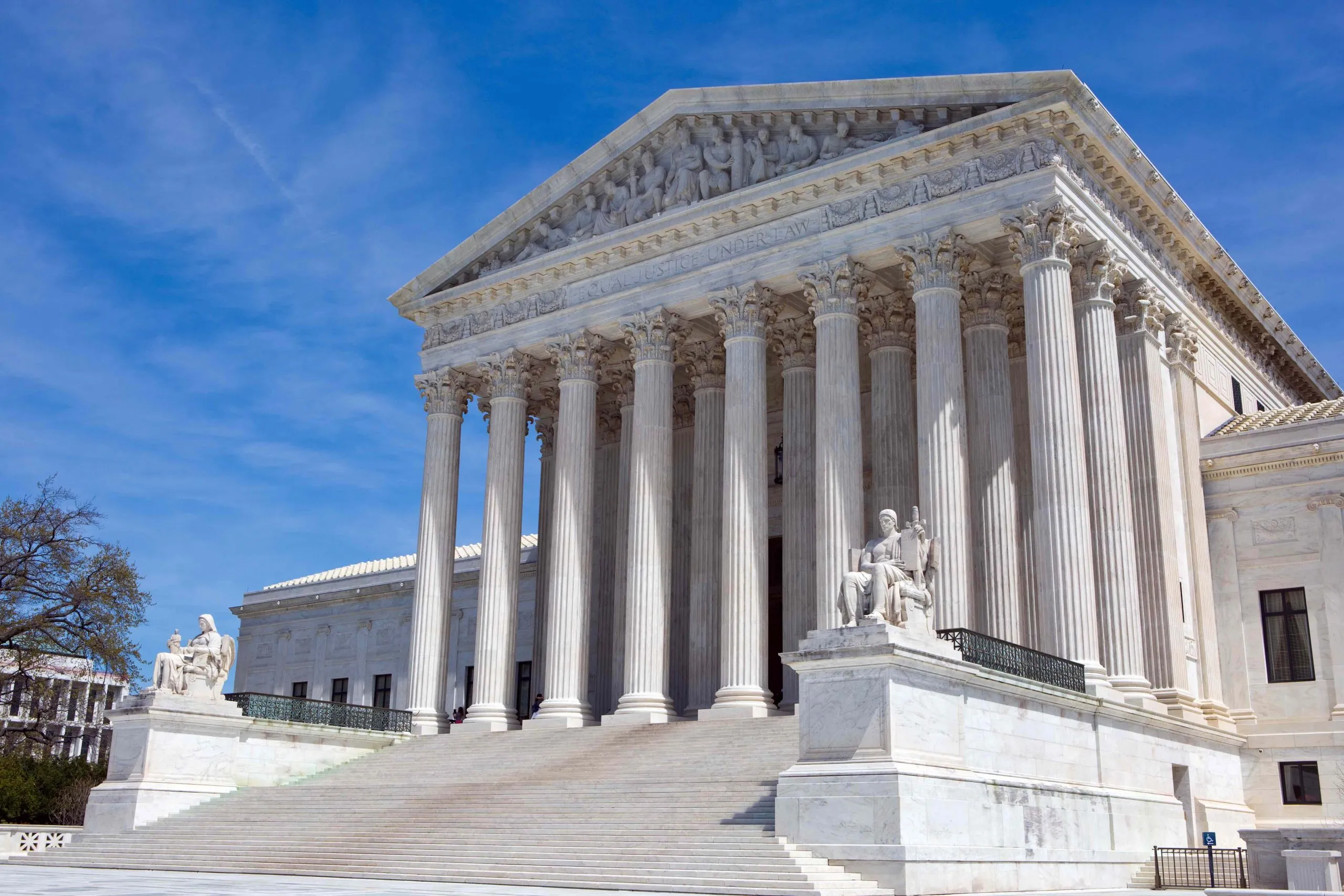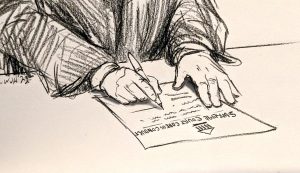Justices issue official code of conduct


In her 2019 testimony before a subcommittee on the House Committee on Appropriations, Justice Elena Kagan – ostensibly on Capitol Hill to discuss the Supreme Court’s budget – told lawmakers that Chief Justice John Roberts was studying a code of conduct for the justices. Four-and-a-half years later, with the court buffeted by revelations about the failures by some of its members to include luxury travel in their financial disclosures, the justices on Monday issued a code of conduct. Signed by all nine judges, the code of conduct largely tracks an existing code for other federal judges, but it also met with criticism from court-reform advocates and Democratic lawmakers for its failure to provide for any enforcement mechanism.
The debate over whether the justices should be subject to an ethics code is not a new one. In his year-end report in 2011, Roberts pushed back against suggestions that the court should either adopt an ethics code or formally adhere to the code for other federal judges.
But calls for an ethics code intensified this year, beginning with an April 6 ProPublica story reporting that Justice Clarence Thomas had not disclosed extensive luxury travel, including trips on private jets and superyachts, paid for by a Republican megadonor, Harlan Crow. Thomas later described the trips as “personal hospitality” from a friend, and he indicated that he had been advised that he did not have to disclose them.
Two months later, ProPublica reported that Justice Samuel Alito had not disclosed a 2008 fishing trip to Alaska on a private jet chartered by billionaire Paul Singer, who runs a hedge fund that appeared several times before the court in the years that followed Alito’s trip. Alito did not recuse himself.
In the spring, Sen. Richard Durbin (D-Ill.), the chair of the Senate Judiciary Committee, invited Roberts to testify before the committee about Supreme Court ethics rules and potential reform. The Supreme Court’s “decade-long failure to address” the “steady stream of revelations regarding Justices falling short of the ethical standards expected of other federal judges” has led “to a crisis of public confidence,” Durbin wrote in a letter to Roberts.

In a letter on April 25, Roberts declined Durbin’s invitation, citing concerns about judicial independence and the division of power among the three branches of government. Roberts attached a “Statement on Ethics Principles and Practices” to his letter. The statement, which was signed by all nine justices, specifically cited the code of conduct for other federal judges as part of a “body of ethical rules and practice” that “are of significant importance to the Justices.” But the statement cautioned that the provisions of that code of conduct “are not themselves rules” and are “far too general to be used in that manner.”
The focus on the ethics issue continued through the summer and into the fall. Several justices – including Kagan and Justices Amy Coney Barrett and Brett Kavanaugh – expressed support for an ethics code during speaking engagements. And in July, a divided Senate Judiciary Committee voted to send a bill to the Senate floor that would require the court to adopt an ethics code.
But it still came as somewhat a surprise when, with little fanfare, the court released its ethics code on Monday afternoon. In the statement that accompanied the code, the justices explained that the rules embodied in their new code are generally “not new.” However, they continued, the lack of an ethics code “has led in recent years to the misunderstanding that the Justices of this Court, unlike all other jurists in this country, regard themselves as unrestricted by any ethics rules. To dispel this misunderstanding, we are issuing this Code, which largely represents a codification of principles that we have long regarded as governing our conduct.”
As the accompanying commentary explains, the court’s code is “substantially derived” from the code of conduct for other federal judges – but, the commentary emphasizes, “adapted to the unique institutional setting of the Supreme Court.” This adaptation is especially important, the commentary suggests, when it comes to the question of when the justices should recuse themselves from a particular case, because (unlike in the lower courts) there is no one who can step in to take the place of a justice who is recused, which in turn can affect the process and place one side at a disadvantage.
The code of conduct identifies specific circumstances in which the justices should recuse themselves – for example, when the justice or a member of her family is involved in the case – but it generally leaves the decision up to the individual justices, and it does not require the justices to explain why they are recusing themselves.
The code does not provide for any mechanism for its enforcement. The commentary addresses the question of enforcement only obliquely, quoting the late Justice Tom C. Clark’s observation that “judges ‘must bear the primary responsibility for requiring [appropriate] judicial behavior'” and then outlining various steps that the court may take to “assist the Justices in complying with” the code.
At least one group that had advocated for the court to adopt an ethics code was unimpressed with the court’s efforts. Gabe Roth, the executive director of a nonpartisan group that advocates for more transparency at the Supreme Court, said in a statement that the code left “much to be desired.” “That it’s largely a copy-and-paste job from the lower court’s code fails to account for so much,” Roth continued. “For example, under the new Code, there remains today no way for a lawmaker or member of the public to file a complaint against a justice for misconduct.”
Sen. Sheldon Whitehouse (D-R.I.) echoed Roth’s concerns about the lack of an enforcement mechanism in the code. He called the code “a long-overdue step by the justices,” but he added that “a code of ethics is not binding unless there is a mechanism to investigate possible violations and enforce the rules. The honor system has not worked for members of the Roberts Court,” Whitehouse concluded.
This article was originally published at Howe on the Court.
Posted in What's Happening Now
